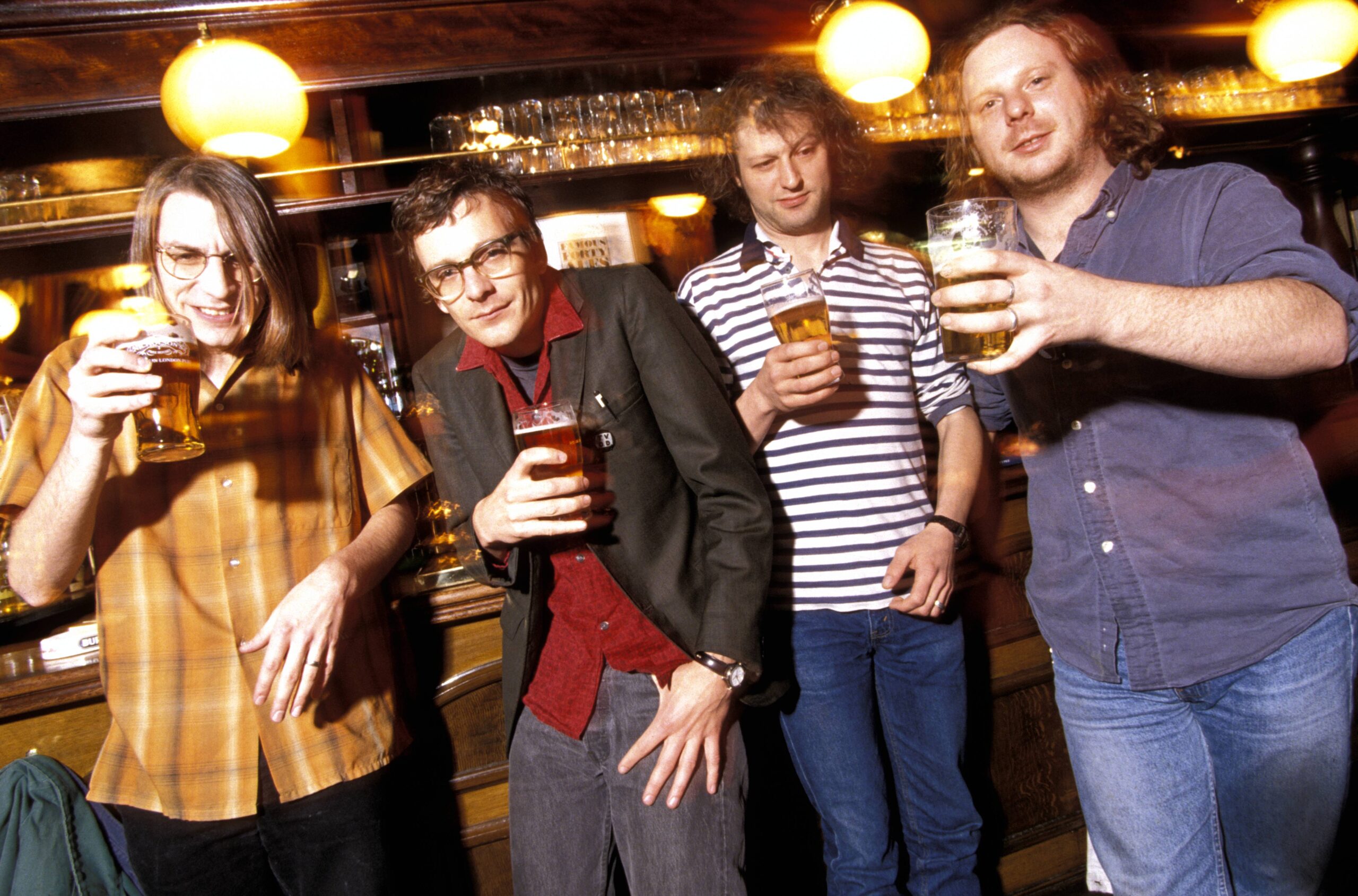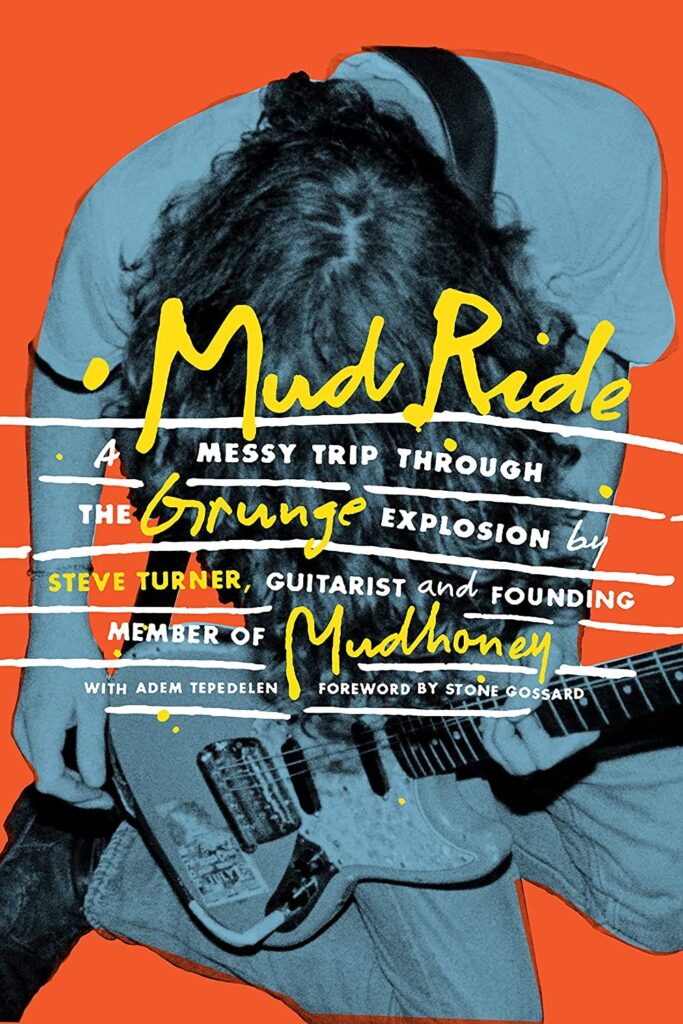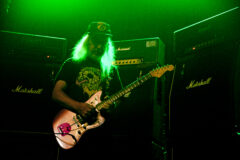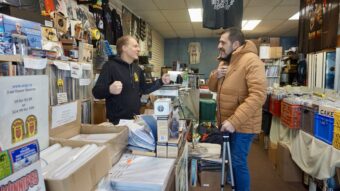Mudhoney—singer Mark Arm, guitarist Steve Turner, bassist Guy Maddison and drummer Dan Peters—are celebrating thirty-five years since they spearheaded the Seattle music scene and Sup Pop Records. On April 7th, they released their eleventh studio album Plastic Eternity and recently completed an Australian tour, with more dates to follow.
Now Turner, the noise-pedal stomping guitarist — whose lo-fi garage-rock-meets-punk sound helped define the grunge phenomenon — has written the definitive tell-all of that time. The title is taken from a sludgy Mudhoney classic: Mud Ride: A Messy Trip Through The Grunge Explosion.
And it’s been quite a “mud ride”.In his memoir, the fifty-eight-year-old reflects on childhood upbringing before taking a deep dive into the ‘80s and ‘90s-era Seattle underground scene. From there, he traces Mudhoney’s grunge-defining path from early indie-rock fame to present day, still making kick-ass music.
But Mud Rideisn’t just a Mudhoney rehashing. Turner delves into his personal and artistic struggles, solo and side projects and the inevitable slowdown of Mudhoney as each member juggles day jobs and family life. With a healthy dose of wit and wisdom, soul-baring honesty and a riffing style that invokes his slash-and-burn guitar playing, Mud Ride offers something for record-collecting music geeks, skateboarder punk crews, grunge history heads, Nirvana and Pearl Jam fans, and Mudhoney buffs alike.
How did the idea to write Mud Ride manifest?
That was [co-author] Adam’s [Tepedelen] idea, really. He contacted me during the pandemic and suggested it. I hadn’t really thought very hard about doing a memoir before, but he sold it to me. I started thinking about it and figured [that] I wanted to really concentrate on the early days of the Seattle scene. I wanted a lot [of details] about what else was going on in Seattle in the ‘80s.
It ended up being organized into three parts. The first part is everything that happened until the day Mudhoney started, the Mudhoney glory years, I like to call it—the ‘90s, basically—and then what happens after that. [laughs] Obviously, the kids, marriage, trying to balance how to be an artist with other responsibilities, jobs, etc. For some people, that’s a part of the book they’re excited about—they’ve read enough about the glory years, if you will.
You go deep through the decades. Did you tap into your bandmate’s memory banks or other people to make sure you got things right?
I started off fact-checking things. I trust Dan’s memory over any of ours—he’s got the best memory out of all of us. I was fact-checking with him at first and checking in with my brother and sister. Then I stopped because, you know, it’s my memoir—it’s how I remember things. There’s going to be factual mistakes in it, tiny things that don’t really matter.
But this is my memory. It’s my memoir.
When you were writing the book, were there any moments of reflection and regret?
Everybody makes mistakes through their life, right? So everyone, I think, wishes some things happened differently. I’m the same, but it is what it is. I’m not an overly nostalgic person but I realized through my life I’m nostalgic for things I didn’t get to live through. When I was a teenager, I became obsessed with ‘60s garage punk and I was, like, “Why couldn’t I have been born fifteen years earlier?! I would have been a teenager in 1966! Perfect! Or 1977 or 1955.” Those are the key years I wish I had experienced: the birth of rock and roll, the teenage garage phenomenon, and the ‘77 punk thing—I was just a few years too late for that one. [laughing]
A crucial thing you cover in the book is how skateboarding and punk rock and hardcore presented themselves as the perfect intersection for you to send you on your way.
It was such a gateway for so many of us and the world, really. A few of those professional skaters that we idolized got into punk rock, so we couldn’t be the guys saying “punk sucks” anymore. We had to go, “Okay, I guess we like punk rock now.” I was definitely one of those and it kind of took over. I really wasn’t that into music right before skateboarding and punk rock. It was an exciting thing. There was just a few of us that knew about it—both skateboarding and punk rock. It was a small little hidden secret society.
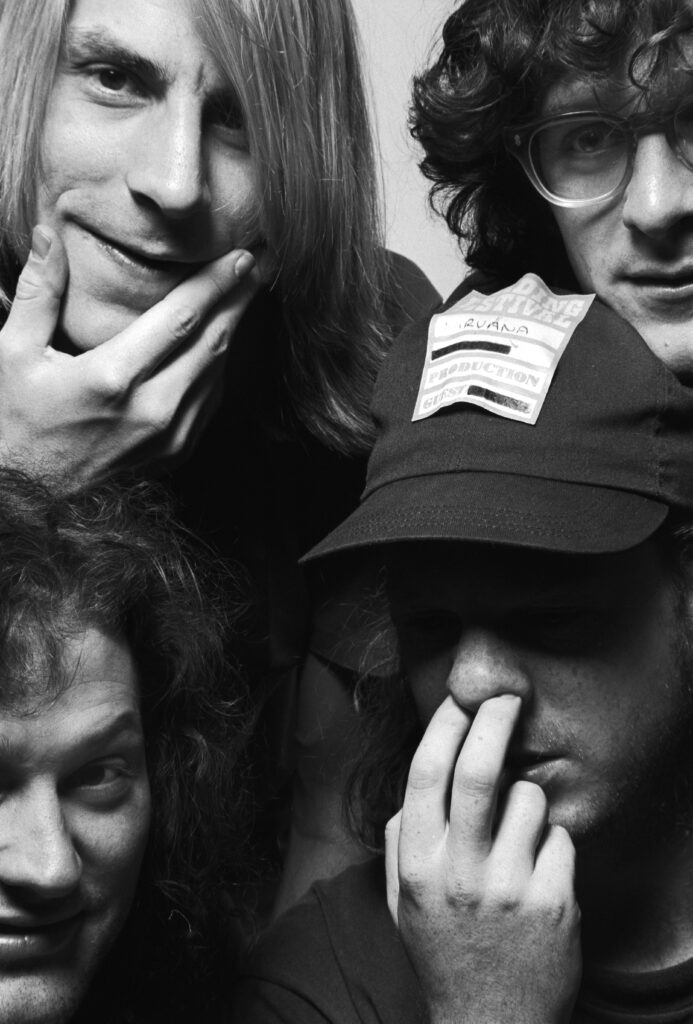
As far as revelations go, you being asked to join Nirvana as the second guitarist by Krist Novoselic is top of the list.
It was such a minor thing, but it’s funny to speculate on what could have happened. My point of view, which I said in the book, is they were such a good three-piece. They had a second guitar player before that—Jason Everman. God bless Jason Everman, he’s awesome and he’s got some stories. But it didn’t really seem to add anything to the band, to me. When he left the band and they were back to a three-piece, that’s when they were at their most powerful.
So, I was like [to Krist], “You don’t need one [a second guitarist].” But we didn’t know what was coming around the corner with [Kurt Cobain], that mega fame and attention. But it wasn’t for me. I wouldn’t have lasted more than three weeks in that band.
Another thing that struck me was how you came up with future Pearl Jam co-founders Stone Gossard and Jeff Ament in Green River, a band that predated Mudhoney. You clashed with Gossard because you were bred on punk and hardcore and he was way into metal.
It’s almost the other way around in some ways because Jeff came from total hardcore—his punk credentials are solid. Small-town skater dude, had a band, had a ramp in his backyard, had a fanzine. But he got really into metal, too. I think through some of the hardcore bands that were getting into metal and getting better production on the recordings and things like that, he already was really interested in that stuff. He really liked some of the Boston hardcore like SSD (Society System Decontrol) and I know he called the producers of some of that stuff just to get some recording tips when Deranged Diction were recording because by that point I was already working with Jeff at the coffee shop. Stone really turned me on to some great music.
There’s plenty of crossover for us in the early days. [Stone] got really into the more melodic Southern California hardcore stuff like The Adolescents and Social Distortion and I remember he really liked Agent Orange. That conflict came a little bit later. When Green River started it, it was sloppy garage-y stuff.
Did you happen to see the cover of Thurston Moore’s memoir, Sonic Life, slated to come out later this year? The cover of your book and his are eerily similar.
I haven’t seen it yet. That’s funny. I saw him announce it and I was stoked on that because he’s a great writer. I would say that Thurston and Sonic Youth were an influence on me and I would actually also say that Mudhoney was an influence on Sonic Youth and Thurston. They got so into that Seattle thing; they were very early champions of Green River, Mudhoney and Nirvana.
They took Mudhoney on tour back in the day.
Right away! And covered our song [“Touch Me I’m Sick”] right away. They were great and I think we loosened them up a little bit. We were very different, as far as people on tour with, especially in those early days. Sonic Youth would be reading books backstage and we’d be falling over ourselves spilling beer.
In Mud Ride, you embrace the term “grunge.” You don’t think of it as a four-letter word and you don’t run away from it.
[Laughs] That’s just me being contrarian. In 1995, when we were doing My Brother the Cow, that was the last thing anybody wanted to hear. The media spotlight had run its course [on Seattle] and it ended in tragedy with Cobain killing himself and all that. It was the last thing anybody wanted to know about. But if anybody’s grunge, Mudhoney is. I understand why Pearl Jam hated that term and some of the other bands. But for us, we’ve always described our guitar sound from the Mr. Epp days as “grungy.” To me, I was, like…“Let’s just own that term.”

